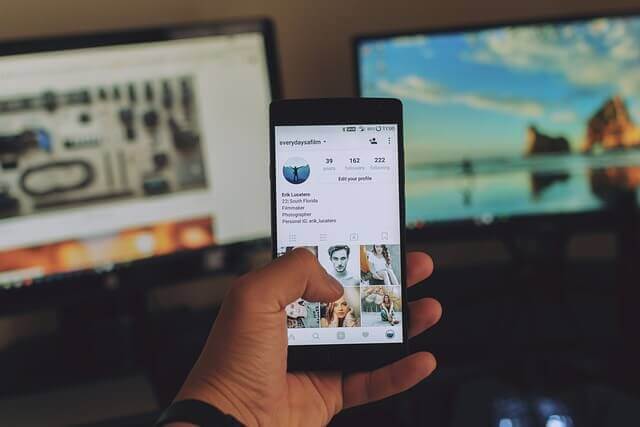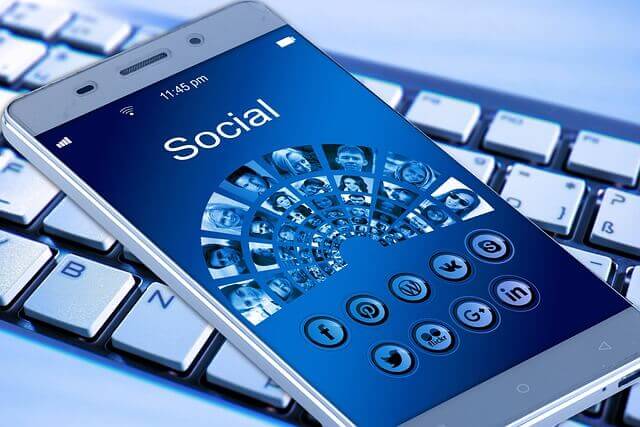No products in the cart.
Influence Of Social Media
Balancing Connection and Well-Being
In the contemporary era of technology, social media plays a pivotal role, seamlessly connecting individuals across the globe and integrating into our daily lives. While it has its perks, recent studies reveal that social media usage can significantly impact our mental health, leading to anxiety, depression, and other health challenges – This is Influence Of Social Media.
The Rewarding Nature and the Risk
Social networking sites possess an alluring characteristic that triggers the brain’s pleasure center, resulting in the release of dopamine – the neurotransmitter responsible for generating positive emotions. This rewarding nature keeps users engaged, as they seek validation through likes and positive feedback on their posts. Unfortunately, the constant comparison with others and the fear of missing out (FOMO) can lead to feelings of anxiety, depression, and even physical ailments [1].
The Vulnerability of Teens
Adolescents, especially girls, are particularly vulnerable to the negative effects of social media. Starting young, teens are exposed to a distorted lens on appearances and reality, fueling unrealistic standards and body image issues. The lack of impulse control and fully developed frontal lobes during puberty make them more susceptible to anxiety and emotional distress caused by online interactions [2].
Taking Control of Your Social Media Usage
While it may be challenging to completely quit social media, individuals can take steps to minimize its negative impact on their mental health. Conducting personal behavior experiments, such as rating emotions before and after using social media, can help users identify triggers and adjust their usage accordingly. Limiting social media time and engaging in other enjoyable activities can be effective in combating anxiety and depression related to excessive screen time [3].
Parents’ Role in Setting a Healthy Example
Parents play a crucial role in shaping their children’s relationship with social media. Establishing guidelines for device usage and encouraging face-to-face interactions can help reduce the negative effects of excessive screen time on kids. By being mindful of their own social media habits, parents can set a positive example and foster healthier media use in their children [4].
The Influence Of Social Media on Mental Health
As social beings, our connections with others greatly influence our mental health and happiness. Social media platforms have revolutionized how we connect, but they can never fully replace genuine, in-person interactions that release stress-reducing hormones and promote happiness. Interestingly, spending an excessive amount of time on social media platforms may result in experiencing emotions like isolation, unease, and despondency [5].
The Positive Aspects of Social Media
Despite its limitations, social media can have positive effects. It allows us to stay connected with family and friends worldwide, discover new communities, promote important causes, seek emotional support, and access information and learning resources [6].
The Negative Aspects of Social Media
Extensive utilization of social media has been associated with heightened possibilities of experiencing depression, anxiety, isolation, and self-inflicted harm. The meticulously crafted and perfected content on these platforms has the potential to evoke emotions of inadequacy, jealousy, and a fear of being left out (commonly known as FOMO). Engaging in excessive social media can foster self-absorption, cyberbullying, and perpetuate negative emotions [7].
Understanding Your Social Media Use
These platforms are designed to keep us engaged, leading to compulsive behaviors and psychological cravings. FOMO often drives excessive usage, making us feel the need to respond immediately and frequently to posts and notifications [8].
Signs of Unhealthy Social Media Use
The influence of utilizing social media on mental well-being is a personal matter, with effects that differ among individuals. Indicators of unhealthy use include neglecting face-to-face relationships, constant comparison with others, feeling distracted or unable to self-reflect, and experiencing sleep problems, anxiety, or depression [9].
Steps to Improve Mental Health through Social Media
- Reduce Time Online: While a complete social media detox may not be feasible, setting a goal to reduce usage and being mindful of time spent can significantly improve mood and focus. Utilizing phone apps to track usage, turning off notifications, and limiting access during specific activities can help.
- Change Your Focus: Be conscious of your motivations when using social media. Seek specific information or meaningful interactions, rather than mindlessly scrolling to pass the time or seeking validation through likes.
- Spend More Time with Offline Friends: Real-life connections are vital for mental well-being. Make time for regular in-person interactions with friends and family, joining clubs, and engaging in shared activities.
- Express Gratitude: Counteract negative emotions fostered by social media by practicing gratitude. Keep a journal of positive aspects in your life and focus on what you have rather than what you lack [10].
Conclusion – Influence Of Social Media:
While social media has revolutionized communication and connection, it comes with potential risks to our mental health. Understanding these risks, being aware of our emotions, and setting healthy boundaries can empower individuals and families to navigate the digital world more responsibly. By prioritizing meaningful real-life connections and utilizing social media mindfully, we can strive for emotional well-being in this ever-evolving digital age.
Have you seen a person with signs of depression on the Internet?
References:
- [1] McLean Hospital. “How Social Media Affects Your Mental Health – Unraveling the Impact on Emotional Wellness.” Link
- [2] HelpGuide. “Social Media and Mental Health: Balancing Connection and Well-Being.” Link
- [3] Medical News Today. “The Impact of Social Media on Mental Health: Understanding the Negative and Positive Effects.” Link
- [4] Healthy Life Recovery. “The Impact of Social Media on Mental Health: Understanding the Detrimental Effects.” Link
- [5] Lancaster General Health. “The Impact of Social Media on Mental Health: Finding Balance in a Digital World.” Link
- [6] Cureus. “The Impact of Social Media Use on Mental Health: A Comprehensive Review.” Link





ToDoGod Admin
People need to be aware!